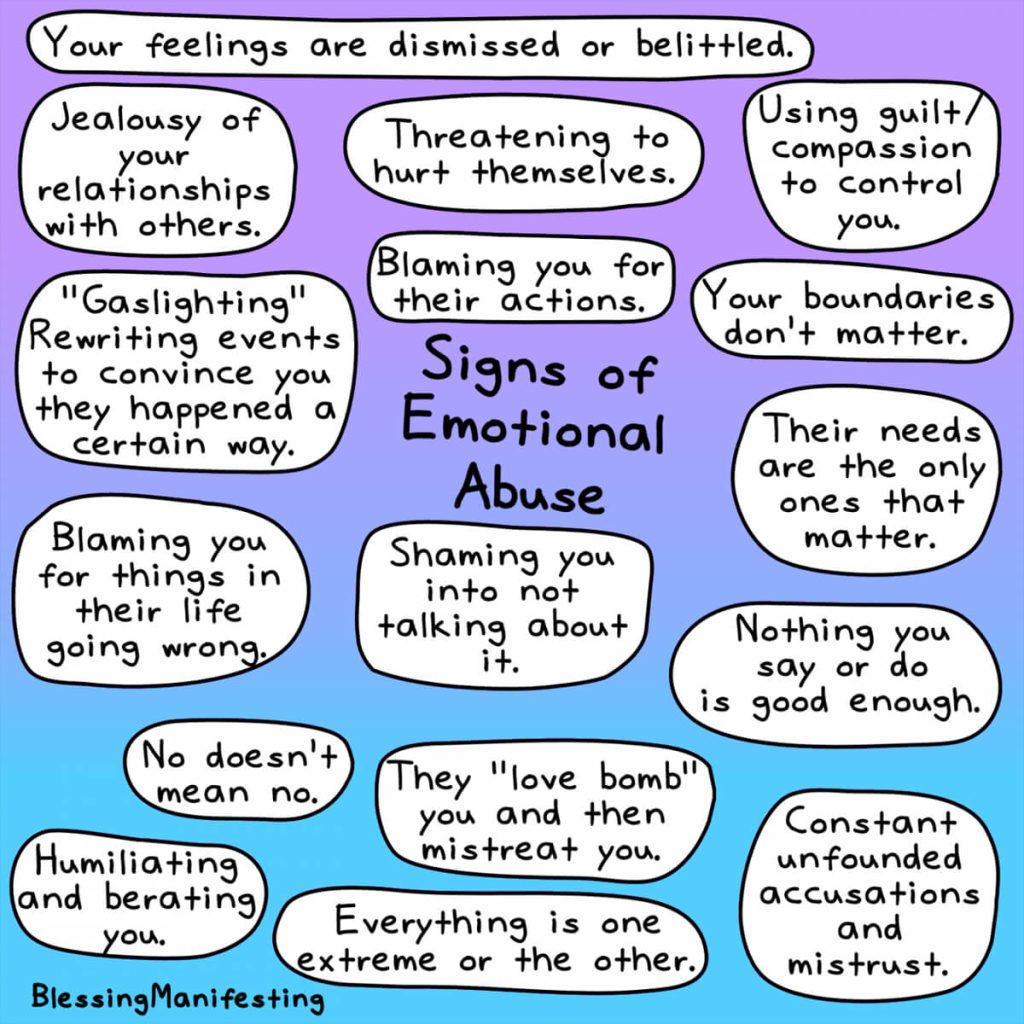Can Emotional Abuse Affect a Divorce Settlement?
Yes, emotional abuse can affect a divorce settlement. Courts consider various factors when determining the outcomes of divorce settlements, including child custody, division of assets, and alimony. Emotional abuse is a significant factor that can impact these decisions:
- Child Custody: The court’s primary concern is the welfare of the children involved. Evidence of emotional abuse can influence the court’s decision on custody arrangements. A judge may determine that it’s in the best interest of the child to limit or supervise visitation with the abusive parent or to award sole custody to the non-abusive parent.
- Alimony and Spousal Support: Emotional abuse might also affect decisions regarding alimony or spousal support. If the abuse has impacted the victim’s ability to work or maintain financial independence, the court may consider this when determining support amounts.
- Division of Assets: While the division of assets is typically determined by state law (community property vs. equitable distribution), evidence of emotional abuse could potentially influence the division if the abuse directly impacted the financial status or contributions of the spouses.
- Restraining Orders: In cases of emotional abuse, the court may issue restraining orders or other protective measures to safeguard the well-being of the abused spouse during and after the divorce process.
- Legal Fees: Sometimes, courts may order the abusive spouse to pay a larger portion of the legal fees, especially if the emotional abuse is part of a pattern of behavior that unnecessarily prolongs litigation or increases the complexity of the divorce.
In this post, we will explore the impact of emotional abuse on divorce settlements. We will take a closer look at what constitutes emotional abuse, how it can affect a divorce settlement, and what steps can be taken to protect yourself and your rights. If you or someone you know is going through a divorce and has experienced emotional abuse, this post is for you.
Divorce & Emotional Abuse
Even though you’re going through a divorce, your spouse does not have the right to be emotionally abusive. If this is happening to you, you have to understand that your divorce process will probably be even more demanding than the typical divorce.
Emotional abuse in a marriage can be insidious and damaging, often leaving lasting scars that are not visible to the naked eye. It is crucial to understand the dynamics of emotional abuse to recognize when it is happening in a relationship. Unlike physical abuse, emotional abuse is not always easily identifiable, as it involves behaviors and tactics that are manipulative, controlling, and demeaning.
Manipulation and Control.
This can take the form of one partner exerting power over the other through tactics such as gaslighting, guilt-tripping, or isolating them from friends and family. This can lead to feelings of helplessness and low self-worth in the victim.
Verbal Abuse.
Another type of emotional abuse is verbal abuse, which can include insults, threats, or constant criticism. Verbal abuse can have long-lasting effects on a person’s mental and emotional well-being and may be a key factor in divorce proceedings.
Financial abuse.
Financial abuse is also a form of emotional abuse that is often seen in divorce situations. This can involve one partner controlling the finances in a way that limits the other partner’s access to money or resources, leading to feelings of dependency and powerlessness.
What is Emotional Abuse?
Emotional abuse can take on many forms, such as constant criticism, belittling, intimidation, and gaslighting. It can also involve isolating the victim from friends and family, making them feel dependent and powerless. The abuser may use tactics like guilt-tripping, blame-shifting, and manipulation to maintain control over their partner.

This kind of abuse does not leave physical marks but is still extremely painful and damaging. This type of abuse can also manifest in several different ways. Some examples of emotional abuse can include:
- Isolation
- Yelling
- Making threats
- Spreading lies on social media
- Sharing personal and private photographs/conversations
- Controlling financial decisions and accounts
- Criticizing appearance, weight, clothing, and culture
Emotional abuse usually causes strong feelings of shame, helplessness, and fear and can result in serious emotional distress and psychiatric damage. That is why it is very important to keep records.
Proving Emotional Abuse in Court
Proving emotional abuse in court can be a complex and challenging process, but it is crucial when it comes to impacting divorce settlements. To effectively demonstrate emotional abuse, it is essential to gather evidence that supports your claims. Documenting incidents of abuse, such as threatening messages, verbal attacks, or manipulative behavior, can be instrumental in building your case.
Additionally, seeking testimony from witnesses who have observed the abusive behavior or can attest to its impact on your well-being can provide valuable support for your claims. It is also important to consider seeking the expertise of mental health professionals who can evaluate and provide expert opinions on the psychological effects of the abuse.
Records
When you are divorcing someone who previously was, or continues to be, emotionally abusive; the divorce process will probably be even more demanding than the typical divorce. Make sure you track any proof of abuse during the time you were married and throughout the divorce process. You may have a restraining order against your abuser, in which case he or she is forbidden from contacting you. If he or she continues to contact you, record these restraining order violations and report them. Remember, you can’t do it by yourself. You need a trusted advisor who can give you the best path to a successful legal solution.
Legal Implications of Emotional Abuse in Divorce Settlements
Emotional abuse in divorce settlements can have significant legal implications that should not be overlooked. In many jurisdictions, emotional abuse is recognized as a valid ground for divorce and can impact various aspects of the divorce settlement process. Courts take emotional abuse seriously and may consider it when making decisions regarding child custody, spousal support, and division of assets.
When emotional abuse is proven in court, it can affect the distribution of assets and financial support. For example, a spouse who has suffered emotional abuse may be entitled to a larger share of marital assets or increased spousal support to compensate for the harm caused by the abusive behavior. Additionally, courts may take emotional abuse into account when determining child custody arrangements, prioritizing the well-being and safety of the children involved.
Child Custody
If you and your spouse share any children in your marriage, the divorce process will also address the custody of your children. In cases where there is a record of abuse by one parent, the other parent typically has a substantial advantage if he or she wishes to obtain primary or sole custody. A judge will consider the children’s best interest, and each parent’s behavior is an extremely important factor. Again, the records you keep of any abusive behavior your spouse exhibits, either towards you or your children, can be used to help you obtain the custody you seek.

Emotional abuse can have a profound impact on child custody arrangements during divorce proceedings. Courts prioritize the best interests of the child when making custody decisions, and emotional abuse can be a significant factor in determining what is best for the child’s well-being.
When a parent has a history of emotionally abusing their partner or child, it raises concerns about their ability to provide a safe and nurturing environment for the child. Courts may view emotional abuse as a form of domestic violence and take it very seriously when determining custody arrangements.
Evidence of emotional abuse, such as witness testimonies, documentation of abusive behaviors, or psychological evaluations, can play a crucial role in custody proceedings. Courts may be more inclined to limit or even deny custody or visitation rights to an emotionally abusive parent.
Case Studies: Emotional Abuse & Divorce Settlements
In the realm of divorce settlements, emotional abuse can have profound effects on the outcomes of legal proceedings. Real-life case studies serve as poignant examples of the impact emotional abuse can have on divorce settlements. These stories shed light on the complexities and challenges faced by individuals navigating the legal system while dealing with the aftermath of emotional abuse.

One such case study involves a woman who endured years of emotional manipulation and control from her spouse. As the divorce proceedings unfolded, it became evident that the emotional abuse had taken a toll on her mental and emotional well-being, affecting her ability to advocate for herself effectively. This case highlights the importance of acknowledging the lasting effects of emotional abuse and advocating for fair settlements that consider the trauma endured.
Another case study showcases a situation where emotional abuse was used as a tool to exert power and control over a partner during the marriage. In this scenario, the effects of emotional abuse were carefully documented and presented during the divorce proceedings, leading to a more equitable settlement that took into account the emotional harm inflicted. By examining such case studies, we gain valuable insights into the intricate ways emotional abuse can impact divorce settlements and underscore the need for sensitivity and understanding in legal proceedings involving emotional abuse.
What’s Next?
Understanding the impact of emotional abuse on divorce settlements is crucial for ensuring fair and just outcomes for all parties involved. Emotional abuse can have lasting effects on individuals, affecting their mental health and well-being. By recognizing and addressing the impact of emotional abuse during divorce proceedings, legal professionals, mediators, and individuals going through divorce can work towards achieving equitable resolutions that prioritize the safety and healing of survivors.
You may be ordered to attend mediation to resolve your issues. If mediation doesn’t work, your divorce may go to trial. Here, a judge will consider arguments and evidence offered by both sides. If your spouse has engaged in unreasonable and hurtful behavior that’s caused you extreme emotional pain, you may be able to use this to your benefit at trial.




